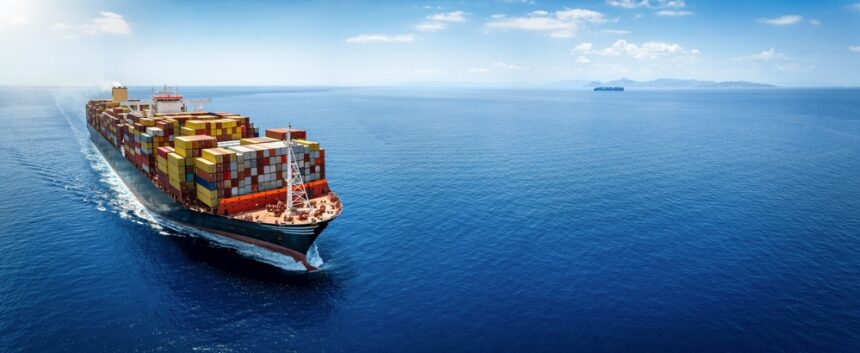The global economy runs on maritime trade – 90% of international trade goes by sea, and many countries are entirely dependent on being able to ship and receive goods by sea. All these materials and goods carried over the oceans are estimated to be worth over 14 trillion USD annually.
But the world is not a perfect highway. A large portion of global shipping is forced to use specific transits called chokepoints to transit from one open sea area to another. If one of these maritime chokepoints is blocked for some reason, it can cause major disruption to the maritime industry, the wider global logistics chain, and the world economy.
Whether goods are being shipped in bulk, in containers, on wheels, on plastic pallets or in tanks, all are vulnerable to disruption at these weak links. Here, we will look at two examples – one that has the potential for major impacts but has so far run smoothly and one where disruption is having tangible effects right now.
The Malacca Straits
A narrow strip of sea between Singapore, Malaysia, Indonesia, and Thailand links the South China Sea to the Indian Ocean.
Over 300 ships per day make the transit along this stretch of water that is only 1.5 miles (2.8km) wide at its narrowest point. With a steady stream of exports from its industry, China receives a massive 80% of all its energy imports through the Malacca Straits. Other key economies such as Japan, Taiwan, South Korea, India, Vietnam and The Philippines are also heavily dependent on the Malacca Straits for both imports and exports.
No one country controls the Malacca Straits, with different parts of the waterway being in four countries’ territorial waters. China especially considers the Straits essential to its economic security and maintains a close watch and interest. Traffic through the Malacca Straits has not yet been disrupted, despite a surge in piracy in the area in the early 2000s (eliminated by increased naval patrols) and recurring issues with forest fires on nearby islands reducing visibility.
While other routes through Indonesia are available, they all add over 2000 miles and a week to any journey between eastern Asia and the Indian Ocean. Disruption in the Malacca Straits would cause major issues with global automotive and electronic industries, which are reliant on microchips and semiconductors produced in Taiwan and China. The fashion industry also depends heavily on manufacturing capacity in China, Vietnam and The Philippines.
The Suez Canal
A key link in global trade routes since it opened in 1869, the Suez Canal runs for 120 miles through Egypt to connect the eastern Mediterranean and the Red Sea. This allows shipping to travel between Europe and Asia without having to round Africa via the Cape of Good Hope. Going via the Suez Canal cuts around 5500 miles off that journey, leading to significant cost savings for both shipper and customer. In a typical year, the Suez Canal handles around 12% of all global shipping.
Unlike the Malacca Strait, disruption in the Suez Canal is not just a hypothetical scenario. In March 2021, the canal became blocked for six days when the container ship Ever Given ran aground. Other ships had to be sent via the Cape of Good Hope, disrupting the finely-honed ‘just in time’ logistics chain of industries all over the world and, in turn, causing shortages and price increases for customers – at an estimated cost to the world’s economy of $9.6 billion per day.
Since late 2023, merchant ships in the Red Sea have been subject to rocket and drone attacks, and nearly 500 voyages have been re-routed around Africa, adding as much as two weeks to the usual journey time between East Asia and Europe. Shipping rates between key Chinese and Western ports have doubled – or more – as a result, leading to higher consumer prices around the world.
Conclusion
There are other chokepoints in the maritime trade network – the Panama Canal and the Straights of Hormuz, for instance – but the two case studies in this blog show how vital such points are for global trade and how much turmoil can be caused – in theory or in reality – if they are blocked.







